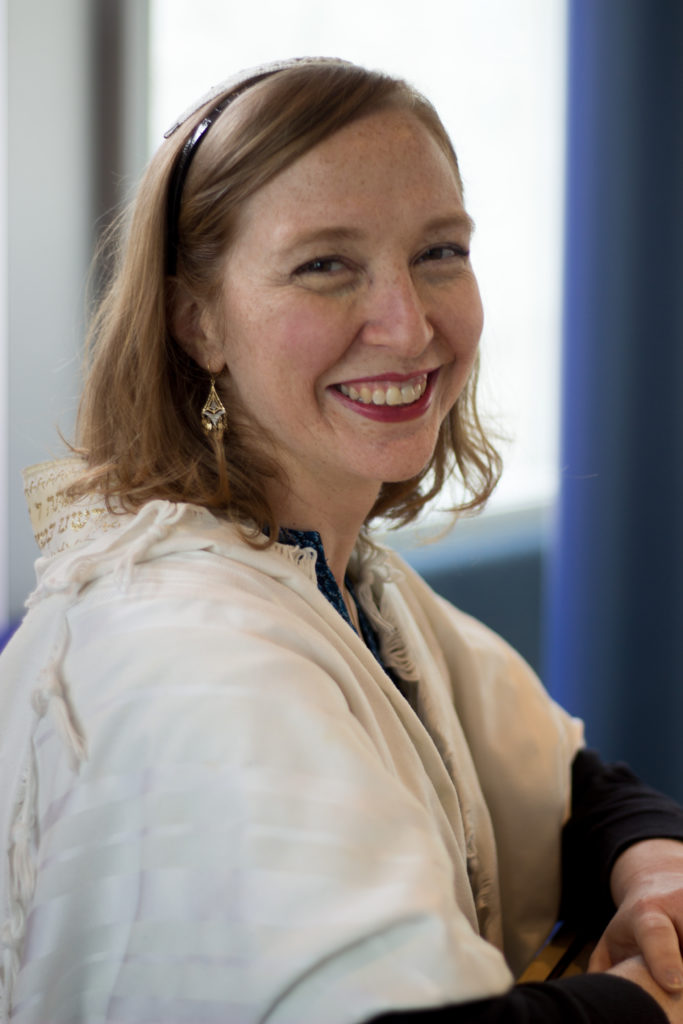I’m historically terrible at not-knowing. I spent many years seeking firm control of outcomes in my life, planning and executing plans, and being rewarded for my knowledge. When I entered rabbinical school, it was at a time when knowing how my life would unfold was uncertain. Who would be my life partner? Where would I live? What would my rabbinic service be like? I began several years of spiritual direction, which is like spiritual therapy or mentorship. One of the major spiritual practices I worked on was not-knowing. I remember one afternoon in my spiritual director’s office, a low lamplight shining on our conversation. She prompted me: What might I ask of G-d right now? I opened my mouth, and these simple words emerged: “G-d, help me to not know.” I must have said that prayer hundreds of times afterward.
In the Torah, the revelation at Sinai is portrayed as straightforward. Everyone listened, everyone heard. There was certainty. Something we could hold on to, after centuries of enslavement without end, then leaping through crashing waters to escape to the other side of the sea, then thunder and lightning and being forbidden to touch the mountain. We weren’t sure what would happen. We weren’t sure what we would hear. But when God’s voice finally boomed forth giving us instructions, we heard it. Moses wrote it down. It was all right there, in a clear list. This step, then that step.
The Midrash later comes to add nuance. We heard revelation in 70 languages. Everyone heard something she could understand. Revelation continues out from the top of Mount Sinai to this day, if only we would listen carefully. On the one hand, these teachings are comforting – there’s much more in here than we realize; there’s enough for everyone to connect in their own way. On the other hand, it’s challenging: If the Torah has 70 faces, as our tradition teaches, what is true? What do we do now? Which way do we turn?
I am seeing this same set of questions in the workshops I’m leading these days in Jewish communities across North America. Community leaders are looking for answers, the long bulleted list of what to do now, as we exit the pandemic stage and try to rebuild what Jewish community looks like. Which steps should we take? I know I’m disappointing people when I don’t have a list. I’ve come to realize that this time period is much more about the not-knowing.
The revelation at Sinai is surrounded on all sides by not-knowing. Both on the way out of Egypt and then, afterward, on the way through the desert to the land of Israel, the path was not clear, and success was not certain. Even revelation itself was done through a cloud that descended onto the top of the mountain. At this moment, I’m beginning to think that the not-knowing was just as important as the certainty of revelation. While it’s important to follow clear steps when they are given, it’s equally important to be able to chart a course through the unknown, with no map or rules. Taking the next best step, not necessarily knowing where it will lead. It hasn’t been easy, these many months of not-knowing. But perhaps it has been strengthening that important muscle. How might we make a spiritual practice of not-knowing? Because the truth is, another word for not-knowing, is faith.

Rabbi Julia Appel is Clal’s Senior Director of Innovation, helping Jewish professionals and lay leaders revitalize their communities by serving their people better. She is passionate about creating Jewish community that meets the challenges of the 21st century – in which Jewish identity is a choice, not an obligation. Her writing has been featured in such publications as The Forward, The Globe and Mail, and The Canadian Jewish News, among others.

